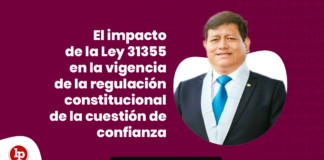Fundamento destacado: 26. El argumento principal del Gobierno se basa en lo que considera una consecuencia de la opinión de la Comisión, a saber, que, en todos los casos relativos a la determinación de un «derecho civil», el Estado debería proporcionar asistencia jurídica gratuita. De hecho, la única disposición expresa del Convenio sobre asistencia jurídica gratuita es el artículo 6, párrafo 3, letra c), que se refiere a los procedimientos penales y está sujeto a limitaciones; además, según la jurisprudencia reiterada de la Comisión, el artículo 6, párrafo 1, no garantiza ningún derecho a la asistencia jurídica gratuita como tal. El Gobierno añade que, dado que Irlanda, al ratificar el Convenio, formuló una reserva al artículo 6, párrafo 3, letra c), con la intención de limitar sus obligaciones en el ámbito de la asistencia jurídica penal, a fortiori no puede decirse que haya acordado implícitamente proporcionar asistencia jurídica civil ilimitada. Por último, en su opinión, el Convenio no debe interpretarse de manera que se produzcan avances sociales y económicos en un Estado contratante; Estos avances sólo pueden ser progresivos.
El Tribunal es consciente de que la realización ulterior de los derechos sociales y económicos depende en gran medida de la situación, en particular financiera, reinante en el Estado de que se trate. Por otra parte, el Convenio debe interpretarse a la luz de las condiciones actuales (sentencia Marckx antes citada, pág. 19, párr. 41) y está destinado a proteger al individuo de una manera real y práctica en lo que respecta a los ámbitos de los que trata (véase el apartado 24 supra). Si bien el Convenio establece lo que son esencialmente derechos civiles y políticos, muchos de ellos tienen implicaciones de naturaleza social o económica. Por tanto, el Tribunal considera, al igual que la Comisión, que el mero hecho de que una interpretación del Convenio pueda extenderse al ámbito de los derechos sociales y económicos no debería ser un factor decisivo en contra de tal interpretación; no existe una división estanca que separe este ámbito del ámbito cubierto por el Convenio.
Además, el Tribunal no comparte la opinión del Gobierno en cuanto a las consecuencias de la opinión de la Comisión.
Sería erróneo generalizar la conclusión de que la posibilidad de comparecer en persona ante el Tribunal Superior no otorga a la Sra. Airey un derecho de acceso efectivo; esa conclusión no es válida para todos los casos relativos a «derechos y obligaciones civiles» ni para todas las personas implicadas en ellos. En determinadas eventualidades, la posibilidad de comparecer en persona ante un tribunal, incluso sin la asistencia de un abogado, cumplirá los requisitos del artículo 6, párrafo 1 (art. 6-1); puede haber ocasiones en que esa posibilidad garantice un acceso adecuado incluso al Tribunal Superior. De hecho, mucho debe depender de las circunstancias particulares.
Además, si bien el artículo 6, párrafo 1 (art. 6-1) garantiza a los litigantes un derecho efectivo de acceso a los tribunales para la determinación de sus «derechos y obligaciones civiles», deja al Estado la libre elección de los medios que se utilizarán para tal fin. La institución de un sistema de asistencia jurídica -que Irlanda prevé ahora en materia de derecho de familia (véase el párrafo 11 supra)- constituye uno de esos medios, pero existen otros, como, por ejemplo, una simplificación del procedimiento. En cualquier caso, no es función del Tribunal indicar, y mucho menos dictar, qué medidas deben adoptarse; todo lo que exige el Convenio es que una persona disfrute de su derecho efectivo de acceso a los tribunales en condiciones que no contradigan las del artículo 6, párrafo 1 (art. 6-1) 1 (art. 6-1) (véase, mutatis mutandis, la sentencia de la Unión Nacional de Policías Belgas de 27 de octubre de 1975, serie A núm. 19, pág. 18, párr. 39, y la sentencia Marckx antes citada, pág. 15, párr. 31).
La conclusión que aparece al final del párrafo 24 supra no implica, por tanto, que el Estado deba proporcionar asistencia jurídica gratuita para toda controversia relativa a un «derecho civil».
El Tribunal reconoce que sostener que existe una obligación de tal alcance no sería acorde con el hecho de que el Convenio no contiene ninguna disposición sobre asistencia jurídica para esas controversias, pues el artículo 6, párrafo 3 (c) (art. 6-3-c) trata únicamente de los procedimientos penales. Sin embargo, a pesar de la ausencia de una cláusula similar para los litigios civiles, el artículo 6, párrafo 1 (art. 6-1) puede obligar en ocasiones al Estado a proporcionar la asistencia de un abogado cuando dicha asistencia resulte indispensable para un acceso efectivo a los tribunales, ya sea porque la representación legal se hace obligatoria, como lo hace el derecho interno de ciertos Estados contratantes para diversos tipos de litigios, o por razón de la complejidad del procedimiento o del caso.
En cuanto a la reserva irlandesa al artículo 6, párrafo 3 (c) (art. 6-3-c), no puede interpretarse en el sentido de que afecta a las obligaciones establecidas en el artículo 6, párrafo 1 (art. 6-1); en consecuencia, no es pertinente en el presente contexto.
[Traducción de LP]
26. The Government’s principal argument rests on what they see as the consequence of the Commission’s opinion, namely that, in all cases concerning the determination of a «civil right», the State would have to provide free legal aid. In fact, the Convention’s only express provision on free legal aid is Article 6 para. 3 (c) (art. 6-3-c) which relates to criminal proceedings and is itself subject to limitations; what is more, according to the Commission’s established case law, Article 6 para. 1 (art. 6-1) does not guarantee any right to free legal aid as such. The Government add that since Ireland, when ratifying the Convention, made a reservation to Article 6 para. 3 (c) (art. 6-3-c) with the intention of limiting its obligations in the realm of criminal legal aid, a fortiori it cannot be said to have implicitly agreed to provide unlimited civil legal aid. Finally, in their submission, the Convention should not be interpreted so as to achieve social and economic developments in a Contracting State; such developments can only be progressive.
The Court is aware that the further realisation of social and economic rights is largely dependent on the situation – notably financial – reigning in the State in question. On the other hand, the Convention must be interpreted in the light of present-day conditions (above-mentioned Marckx judgment, p. 19, para. 41) and it is designed to safeguard the individual in a real and practical way as regards those areas with which it deals (see paragraph 24 above). Whilst the Convention sets forth what are essentially civil and political rights, many of them have implications of a social or economic nature. The Court therefore considers, like the Commission, that the mere fact that an interpretation of the Convention may extend into the sphere of social and economic rights should not be a decisive factor against such an interpretation; there is no water-tight division separating that sphere from the field covered by the Convention.
The Court does not, moreover, share the Government’s view as to the consequence of the Commission’s opinion.
It would be erroneous to generalize the conclusion that the possibility to appear in person before the High Court does not provide Mrs. Airey with an effective right of access; that conclusion does not hold good for all cases concerning «civil rights and obligations» or for everyone involved therein. In certain eventualities, the possibility of appearing before a court in person, even without a lawyer’s assistance, will meet the requirements of Article 6 para. 1 (art. 6-1); there may be occasions when such a possibility secures adequate access even to the High Court. Indeed, much must depend on the particular circumstances.
In addition, whilst Article 6 para. 1 (art. 6-1) guarantees to litigants an effective right of access to the courts for the determination of their «civil rights and obligations», it leaves to the State a free choice of the means to be used towards this end. The institution of a legal aid scheme – which Ireland now envisages in family law matters (see paragraph 11 above) – constitutes one of those means but there are others such as, for example, a simplification of procedure. In any event, it is not the Court’s function to indicate, let alone dictate, which measures should be taken; all that the Convention requires is that an individual should enjoy his effective right of access to the courts in conditions not at variance with Article 6 para. 1 (art. 6-1) (see, mutatis mutandis, the National Union of Belgian Police judgment of 27 October 1975, Series A no. 19, p. 18, para. 39, and the above-mentioned Marckx judgment, p. 15, para. 31).
The conclusion appearing at the end of paragraph 24 above does not therefore imply that the State must provide free legal aid for every dispute relating to a «civil right».
To hold that so far-reaching an obligation exists would, the Court agrees, sit ill with the fact that the Convention contains no provision on legal aid for those disputes, Article 6 para. 3 (c) (art. 6-3-c) dealing only with criminal proceedings. However, despite the absence of a similar clause for civil litigation, Article 6 para. 1 (art. 6-1) may sometimes compel the State to provide for the assistance of a lawyer when such assistance proves indispensable for an effective access to court either because legal representation is rendered compulsory, as is done by the domestic law of certain Contracting States for various types of litigation, or by reason of the complexity of the procedure or of the case.
As regards the Irish reservation to Article 6 para. 3 (c) (art. 6-3-c) , it cannot be interpreted as affecting the obligations under Article 6 para. 1 (art. 6-1); accordingly, it is not relevant in the present context.
[Idioma original]
CASE OF AIREY v. IRELAND
(Application no. 6289/73)
JUDGMENT
STRASBOURG
9 October 1979
In the Airey case,
The European Court of Human Rights, sitting, in accordance with Article 43 (art. 43) of the Convention for the Protection of Human Rights and Fundamental Freedoms («the Convention») and the relevant provisions of the Rules of Court, as a Chamber composed of the following judges:
Mr. G. WIARDA, President,
Mr. P. O’DONOGHUE,
Mr. Thór VILHJÁLMSSON,
Mr. W. GANSHOF VAN DER MEERSCH,
Mr. D. EVRIGENIS,
Mr. L. LIESCH,
Mr. F. GÖLCÜKLÜ
and also Mr. M.-A. EISSEN, Registrar, and Mr. H. PETZOLD, Deputy Registrar,
Having deliberated in private on 23 and 24 February and on 10 and 11 September 1979,
Delivers the following judgment, which was adopted on the lastmentioned date:
PROCEDURE
1. The Airey case was referred to the Court by the European Commission of Human Rights («The Commission»). The case originated in an application against Ireland lodged with the Commission on 14 June 1973 under Article 25 (art. 25) of the Convention by an Irish national, Mrs. Johanna Airey.
2. The Commission’s request, to which was attached the report provided for under Article 31 (art. 31) of the Convention, was filed with the registry of the Court on 16 May 1978, within the period of three months laid down by Articles 32 para. 1 and 47 (art. 32-1, art. 47). The request referred to Articles 44 and 48 (art. 44, art. 48) and to the declaration made by Ireland recognising the compulsory jurisdiction of the Court (Article 46) (art. 46). The purpose of the Commission’s request is to obtain a decision from the Court as to whether or not the facts of the case disclose a breach by the respondent State of its obligations under Articles 6 para. 1, 8, 13 and 14 (art. 6-1, art. 8, art. 13, art. 14).
3. The Chamber of seven judges to be constituted included, as ex officio members, Mr. P. O’Donoghue, the elected judge of Irish nationality (Article 43 of the Convention) (art. 43), and Mr. G. Balladore Pallieri, the President of the Court (Rule 21 para. 3 (b) of the Rules of Court). On 31 May 1978, the President of the Court drew by lot, in the presence of the Deputy
Registrar, the names of the five other members, namely Mr. J. Cremona, Mr. Thór Vilhjálmsson, Mr. W. Ganshof van der Meersch, Mr. L. Liesch and Mr. F. Gölcüklü (Article 43 in fine of the Convention and Rule 21 para. 4) (art. 43).
Mr. Balladore Pallieri assumed the office of President of the Chamber (Rule 21 para. 5). He was subsequently prevented from taking part in the consideration of the case and was replaced by Mr. Wiarda, the VicePresident of the Court (Rule 21 paras. 3(b) and 5). At a later stage and for the same reason the first substitute judge, Mr. Evrigenis, replaced Mr. Cremona (Rule 22 para. 1).
4. The President of the Chamber ascertained, through the Deputy Registrar, the views of the Agent of the Government of Ireland («the Government») and the Delegates of the Commission regarding the procedure to be followed. On 15 July 1978, he decided that the Agent should have until 17 October 1978 to file a memorial and that the Delegates should be entitled to file a memorial in reply within two months from the date of the transmission of the Government’s memorial to them by the Registrar.
The Government’s memorial was received at the registry on 16 October 1978. On 15 December 1978, the Delegates of the Commission filed a memorial, together with the applicant’s observations on the Government’s memorial; they lodged a further document on 22 January 1979.
5. After consulting, through the Registrar, the Agent of the Government and the Delegates of the Commission, the President decided on 1 February 1979 that the oral hearings should open on 22 February 1979.
[Continúa…]


![Dos momentos para requerir la incoación del proceso inmediato: (i) luego de culminar las diligencias preliminares —para ello el requerimiento debe incorporar los mismos elementos de una formalización— y (ii) antes de los 30 días de formalizada la investigación preparatoria [AP 6-2010/CJ-116, f. j. 15]](https://img.lpderecho.pe/wp-content/uploads/2025/10/MAZO-JUEZ-SENTENCIA-PENAL-LPDERECHO-218x150.jpg)
![La apelación del auto que resuelve el requerimiento de proceso inmediato no tiene efecto suspensivo, pues no pone fin al procedimiento penal (doctrina legal) [APE 2-2016/CIJ-116, f. j. 24]](https://img.lpderecho.pe/wp-content/uploads/2025/07/MAZO-TRIBUNAL-LPDERECHO-218x150.jpg)
![El proceso de amparo contra resoluciones judiciales no es la vía para ejercer el derecho de crítica de las decisiones judiciales sin que exista de por medio una vulneración iusfundamental [Exp. 04404-2023-PA/TC, f. j. 5]](https://img.lpderecho.pe/wp-content/uploads/2025/09/AMPARO-RESOLUCIONES-CRITICA-LPDERECHO-218x150.jpg)
![Precedente del Tribunal Registral sobre la extinción del derecho de enfiteusis [Res. 0038-2026-Sunarp/PT]](https://img.lpderecho.pe/wp-content/uploads/2024/03/tribunal-registral-LPDerecho-218x150.jpg)

![Ley Orgánica del Registro Nacional de Identificación y Estado Civil (Ley 26497) [actualizada 2025]](https://img.lpderecho.pe/wp-content/uploads/2025/05/Ley-organica-del-registro-nacional-de-identificacion-y-estado-civil1-LPDERECHO-218x150.jpg)




![[VÍDEO] Aplica el «ne bis in idem» en San Valentin: nadie puede ser celado dos veces por el mismo hecho](https://img.lpderecho.pe/wp-content/uploads/2023/02/aplica-principio-ne-bis-in-idem-san-valentin-LPDERECHO-218x150.png)







![La sanción del art. 203 del CPC (concluir el proceso sin pronunciamiento sobre el fondo) opera ante la inasistencia de ambas partes a la audiencia de pruebas; sanción que no se aplica si las partes acudieron a las primeras sesiones de la audiencia, aunque posteriormente esta se reprograme por ausencia de las partes [Casación 5538-2019, Lima, ff. jj. 13-18] Poder Judicial](https://img.lpderecho.pe/wp-content/uploads/2021/11/Poder-judicial-palacio-de-justicia-ultimo-minuto-1-LPDerecho-218x150.png)




![Es válido que empresa azucarera despida a trabajador luego de encontrar ½ kg de azúcar en su mochila cuando este salía del trabajo; no se necesita probar quién era el propietario del bien incautado [Cas. Lab. 4600-2023, La Libertad, ff. jj. 7 y 8]](https://img.lpderecho.pe/wp-content/uploads/2024/04/banner-despido-vacaciones-desacanso-horas-libres-feriado-trabajador-formal-LPDerecho-218x150.jpg)
![Reglamento Normativo del Tribunal Constitucional [actualizado 2026]](https://img.lpderecho.pe/wp-content/uploads/2026/02/BANNER-CONSTI-REGLAMENTOS-218x150.jpg)
![La finalidad de los procesos constitucionales de la libertad es otorgar protección a los derechos constitucionales, de naturaleza individual o colectiva, y reponer las cosas al momento anterior al de la vulneración o amenaza de vulneración a los mismos, además de disponer el cumplimiento de un mandato legal o de un acto administrativo [Exp. 02250-2023-PHC/TC, f. j. 3]](https://img.lpderecho.pe/wp-content/uploads/2023/01/Logo-LP-con-fondo-guinda-LPDERECHO-218x150.png)
![TC se vuelve a apartar de la STC Exp. 00413-2021-PHC/TC: Si se considera que la pena mínima del robo agravado es exhorbitante, es el legislador y no el TC el competente para determinar el quantum de la pena abstracta [Exp. 00215-2024-PHC/TC, f. j. 9]](https://img.lpderecho.pe/wp-content/uploads/2023/03/tribunal-constitucional-fachada-exterior-tc-LPDerecho-218x150.png)
![Reglamento Interno de la Comisión de Gracias Presidenciales [RM 062-2026-JUS]](https://img.lpderecho.pe/wp-content/uploads/2024/03/ministerio-de-justicia-y-derechos-humanos-minjus-minjusdh-4-LPDerecho-218x150.jpg)
![Reglamento del Sistema de Notificaciones Jurisdiccionales del Tribunal Constitucional [RA 009-2026-P/TC]](https://img.lpderecho.pe/wp-content/uploads/2026/02/BANNER-CONSTI-REGLAMENTOS-1-218x150.jpg)
![Modifican Reglamento Normativo del Tribunal Constitucional [RA 019-2026-P/TC] Congruencia recursal](https://img.lpderecho.pe/wp-content/uploads/2024/03/tribunal-constitucional-3-LPDerecho-218x150.jpg)

![Ley de Delitos Informáticos (Ley 30096) [actualizada]](https://img.lpderecho.pe/wp-content/uploads/2024/08/ley-de-delitos-informaticos-ley-30096-actualizada-LPDERECHO-218x150.jpg)
![Código Penal peruano [actualizado 2026]](https://img.lpderecho.pe/wp-content/uploads/2024/05/VENTA-CODIGO-PENAL-LPDERECHO-218x150.jpg)
![Código Procesal Penal peruano [actualizado 2026]](https://img.lpderecho.pe/wp-content/uploads/2024/02/VENTA-CODIGO-PENAL-BANNER-POST-TAPA-DURA-LPDERECHO-218x150.jpg)
![TUO del Reglamento General de los Registros Públicos (Resolución 126-2012-Sunarp-SN) [actualizado 2026]](https://img.lpderecho.pe/wp-content/uploads/2026/02/TUO-del-Reglamento-general-registros-publicos-LPDerecho-218x150.png)









![[VÍDEO] ¿Quieres postular a la Fiscalía? Estas son las preguntas que hacen en las entrevistas](https://img.lpderecho.pe/wp-content/uploads/2021/10/postular-fiscalia-preguntas-entrevista-LP-218x150.jpg)
![EXP. N.° 0022-2009-PI/TC LIMA GONZALO TUANAMA TUANAMA Y MÁS DE 5000 CIUDADANOS SENTENCIA DEL TRIBUNAL CONSTITUCIONAL En Lima, a los 09 días del mes de junio de 2010, el Tribunal Constitucional en sesión de Pleno Jurisdiccional, con la asistencia de los magistrados Mesía Ramírez, Beaumont Callirgos, Vergara Gotelli, Landa Arroyo, Calle Hayen, Eto Cruz y Álvarez Miranda, pronuncia la siguiente sentencia con los fundamentos de voto de los magistrados Vergara Gotelli y Landa Arroyo, que se agregan. ASUNTO Demanda de Inconstitucionalidad interpuesta por Gonzalo Tuanama Tuanama, en representación de más de 5000 ciudadanos contra el Decreto Legislativo N.° 1089. DEMANDA Y CONTESTACIÓN a) Demanda contra el Decreto Legislativo N.° 1089, que regula el Régimen Temporal Extraordinario de Formalización y Titulación de Predios Rurales Con fecha 01 de julio de 2009, se interpone demanda de inconstitucionalidad contra el Decreto Legislativo N.° 1089, que regula el Régimen Temporal Extraordinario de Formalización y Titulación de Predios Rurales, publicada en el diario oficial El Peruano el 28 de junio de 2008. Los demandantes refieren que “'sin entrar al fondo del contenido de la norma”, ésta fue promulgada sin efectuar ninguna consulta previa e informada a los pueblos indígenas, tal como lo ordena el Convenio 169 de la Organización Internacional De Trabajo (OIT), afectándose con ello los derechos fundamentales de los pueblos Indígenas, como el derecho a la consulta previa y el derecho colectivo al territorio ancestral, establecidos en los artículos 6, 15, 17 del mencionado convenio. De igual forma, expresan que no se tomaron en cuenta los artículos 19, 30 y 32 de la Declaración de las Naciones Unidas sobre los Derechos de los Pueblos Indígenas (DNUDPI) aprobado por la Asamblea General de la Organización de Naciones Unidas. Alegan que con dicha norma se afectan otros derechos establecidos en el Convenio N.° 169, como el derecho sobre las tierras de los pueblos indígenas (artículos 13 al 19), en el considerando que no se tomaron en cuenta medida que garanticen la protección de sus derechos de propiedad y posesión. Refieren que se afecta también el derecho a la libre determinación de las comunidades nativas, previsto en el artículo 17 del Convenio, que declara el respeto de sus formas tradicionales de transmisión de sus territorios. Por último, alegan que se estaría vulnerando lo previsto en el artículo 19 del Convenio en cuanto se afecta el derecho al desarrollo de políticas agrarias adecuadas para los pueblos indígenas. [Continúa...] Descargue la resolución aquí](https://img.lpderecho.pe/wp-content/uploads/2023/01/Logo-LP-con-fondo-guinda-LPDERECHO-1068x561.png)



![Código Penal peruano [actualizado 2026]](https://img.lpderecho.pe/wp-content/uploads/2024/05/VENTA-CODIGO-PENAL-LPDERECHO-100x70.jpg)

![Corte IDH condena al Perú por demora injustificada e innecesaria en la ejecución de decisiones judiciales en agravio de un jubilado [caso Cuadra Bravo vs. Perú]](https://img.lpderecho.pe/wp-content/uploads/2025/05/Corte-IDH-fachada-LPDerecho-100x70.jpg)
![Código Procesal Penal peruano [actualizado 2026]](https://img.lpderecho.pe/wp-content/uploads/2024/02/VENTA-CODIGO-PENAL-BANNER-POST-TAPA-DURA-LPDERECHO-100x70.jpg)
![Reglamento Interno de la Comisión de Gracias Presidenciales [RM 062-2026-JUS]](https://img.lpderecho.pe/wp-content/uploads/2024/03/ministerio-de-justicia-y-derechos-humanos-minjus-minjusdh-4-LPDerecho-324x160.jpg)

![Reglamento del Sistema de Notificaciones Jurisdiccionales del Tribunal Constitucional [RA 009-2026-P/TC]](https://img.lpderecho.pe/wp-content/uploads/2026/02/BANNER-CONSTI-REGLAMENTOS-1-100x70.jpg)
![Reglamento Normativo del Tribunal Constitucional [actualizado 2026]](https://img.lpderecho.pe/wp-content/uploads/2026/02/BANNER-CONSTI-REGLAMENTOS-100x70.jpg)
![Modifican Reglamento Normativo del Tribunal Constitucional [RA 019-2026-P/TC] Congruencia recursal](https://img.lpderecho.pe/wp-content/uploads/2024/03/tribunal-constitucional-3-LPDerecho-100x70.jpg)

![Reglamento Interno de la Comisión de Gracias Presidenciales [RM 062-2026-JUS]](https://img.lpderecho.pe/wp-content/uploads/2024/03/ministerio-de-justicia-y-derechos-humanos-minjus-minjusdh-4-LPDerecho-100x70.jpg)




